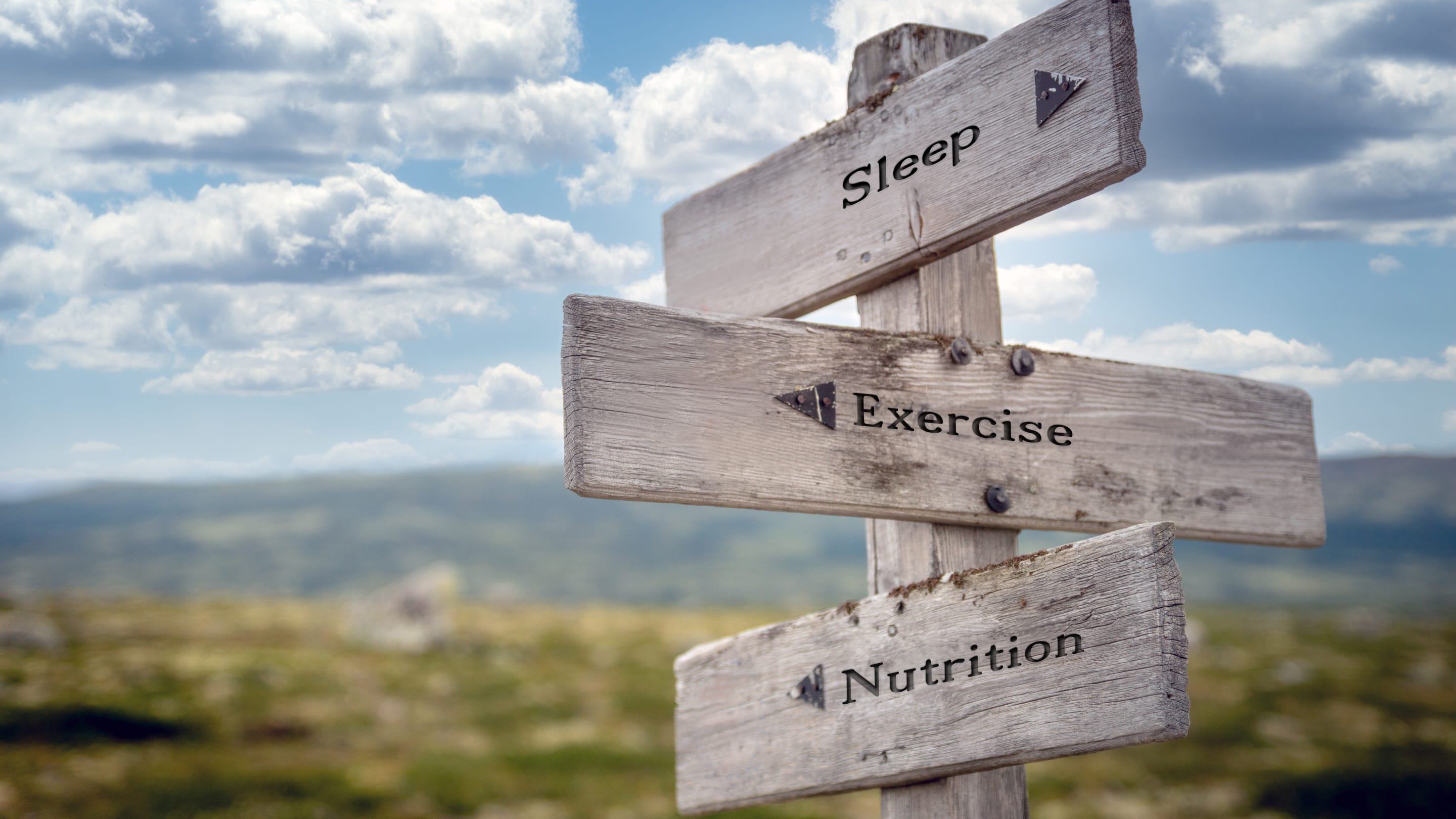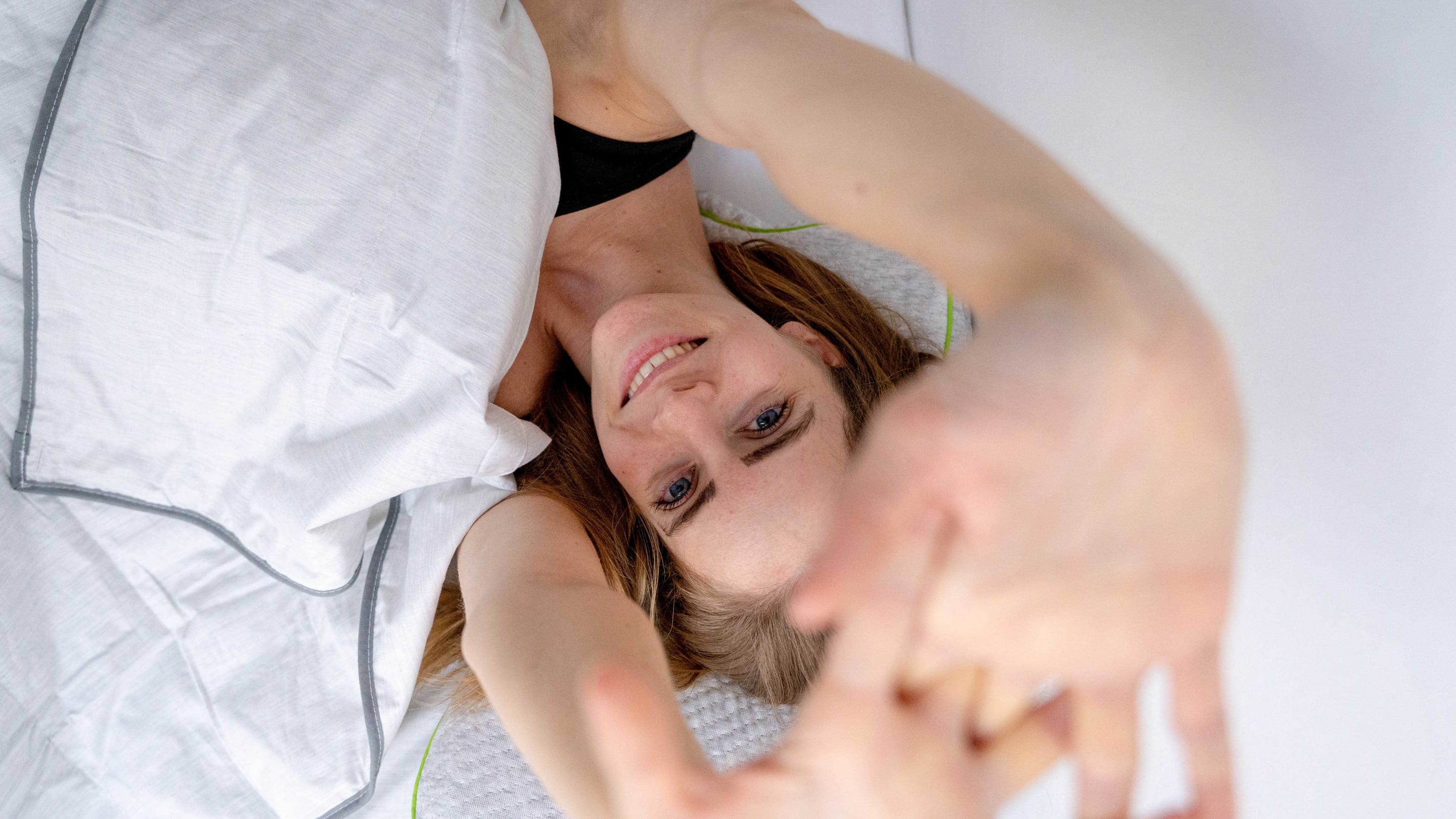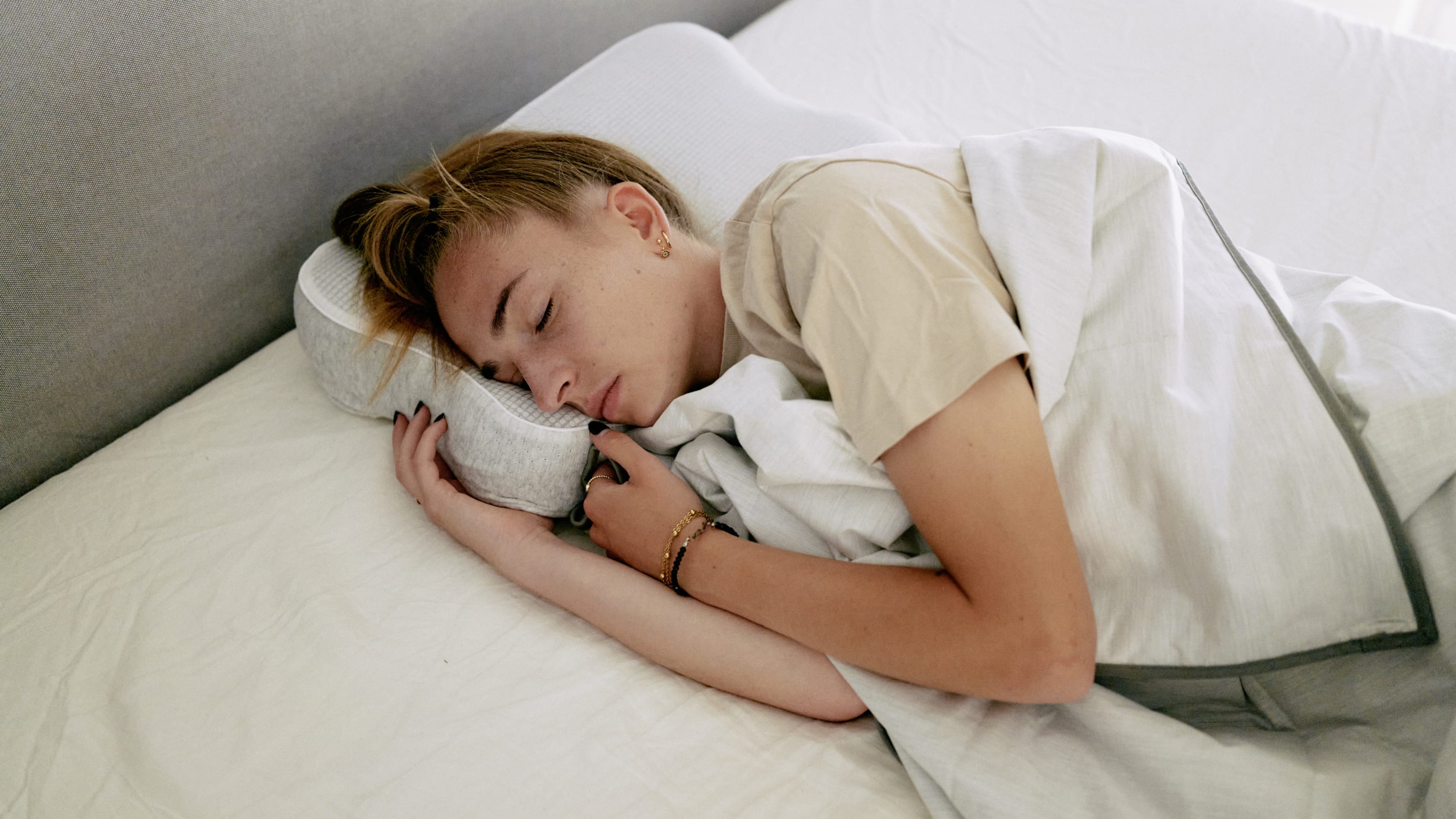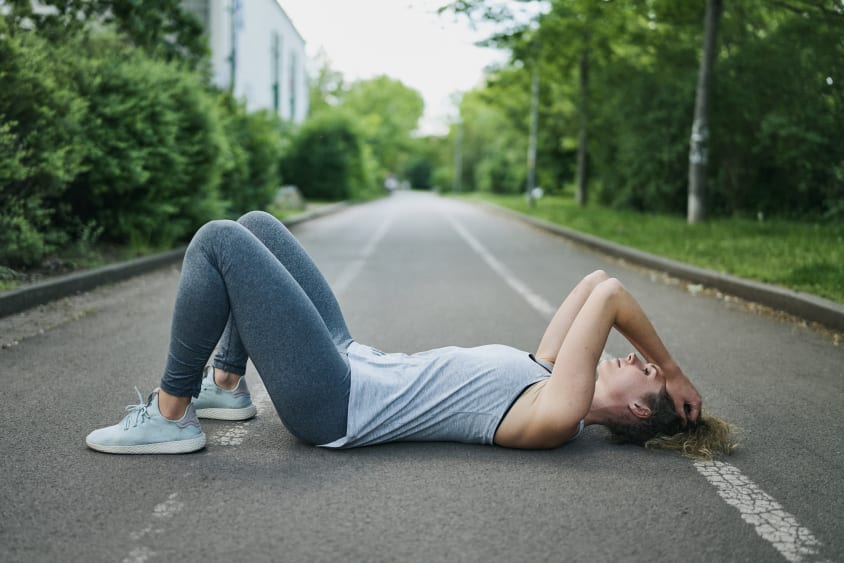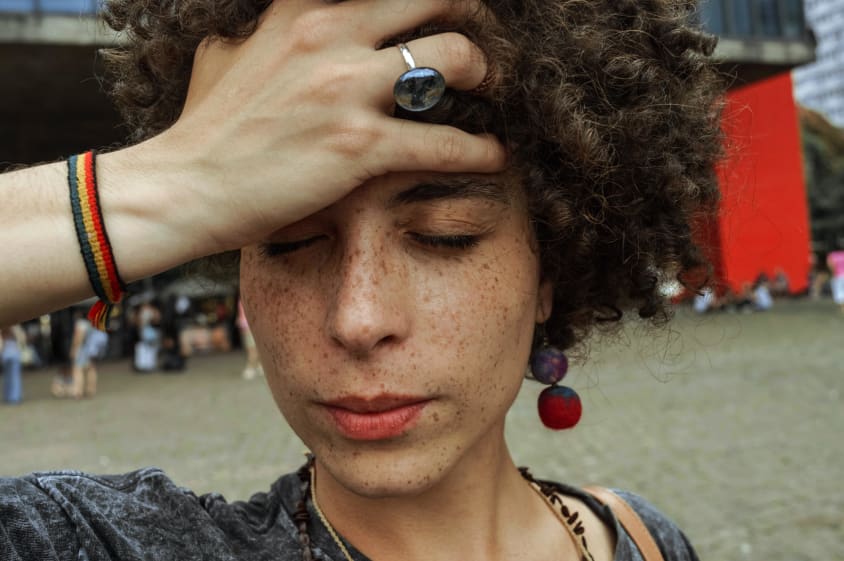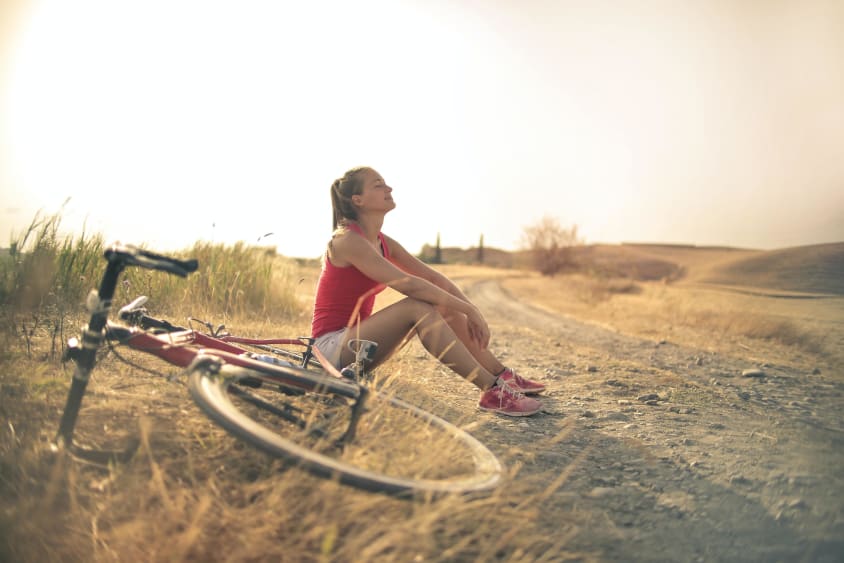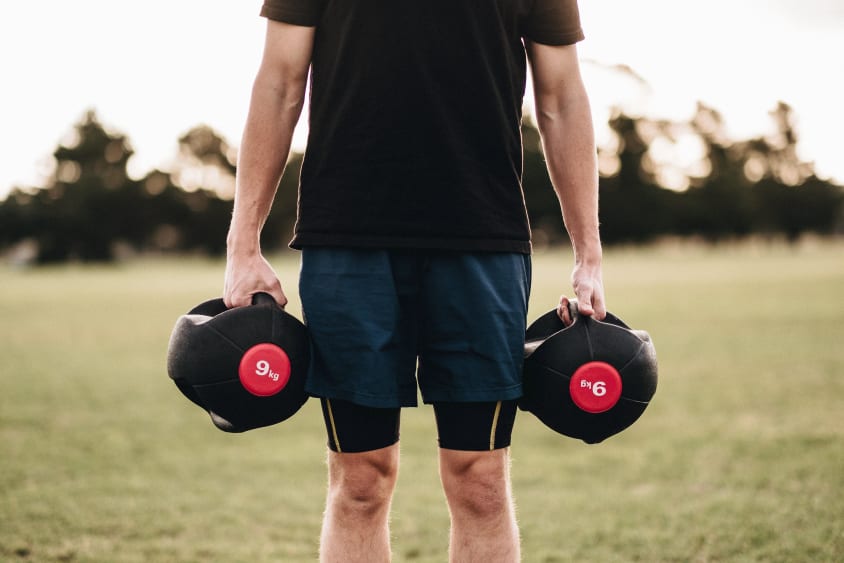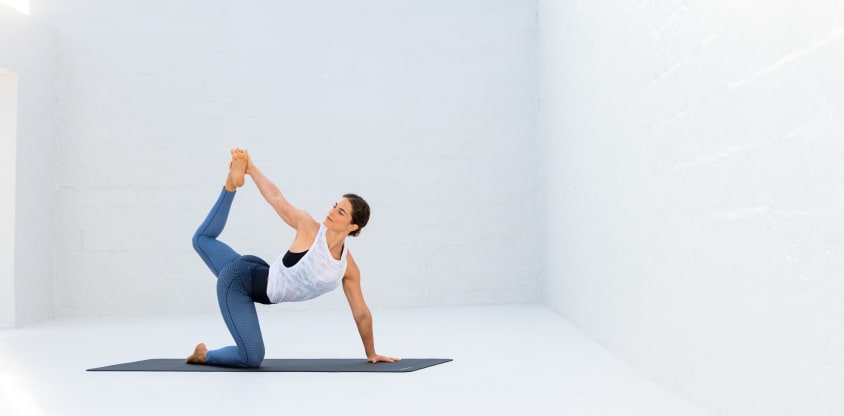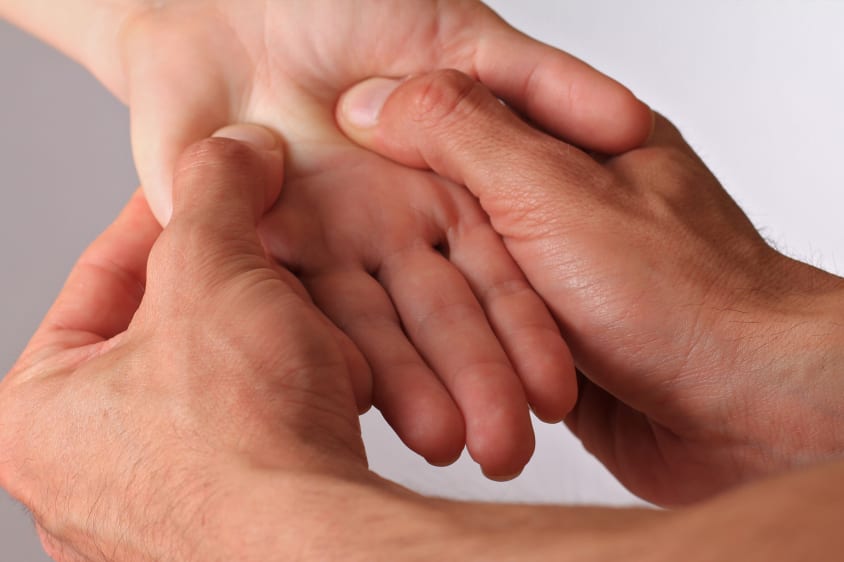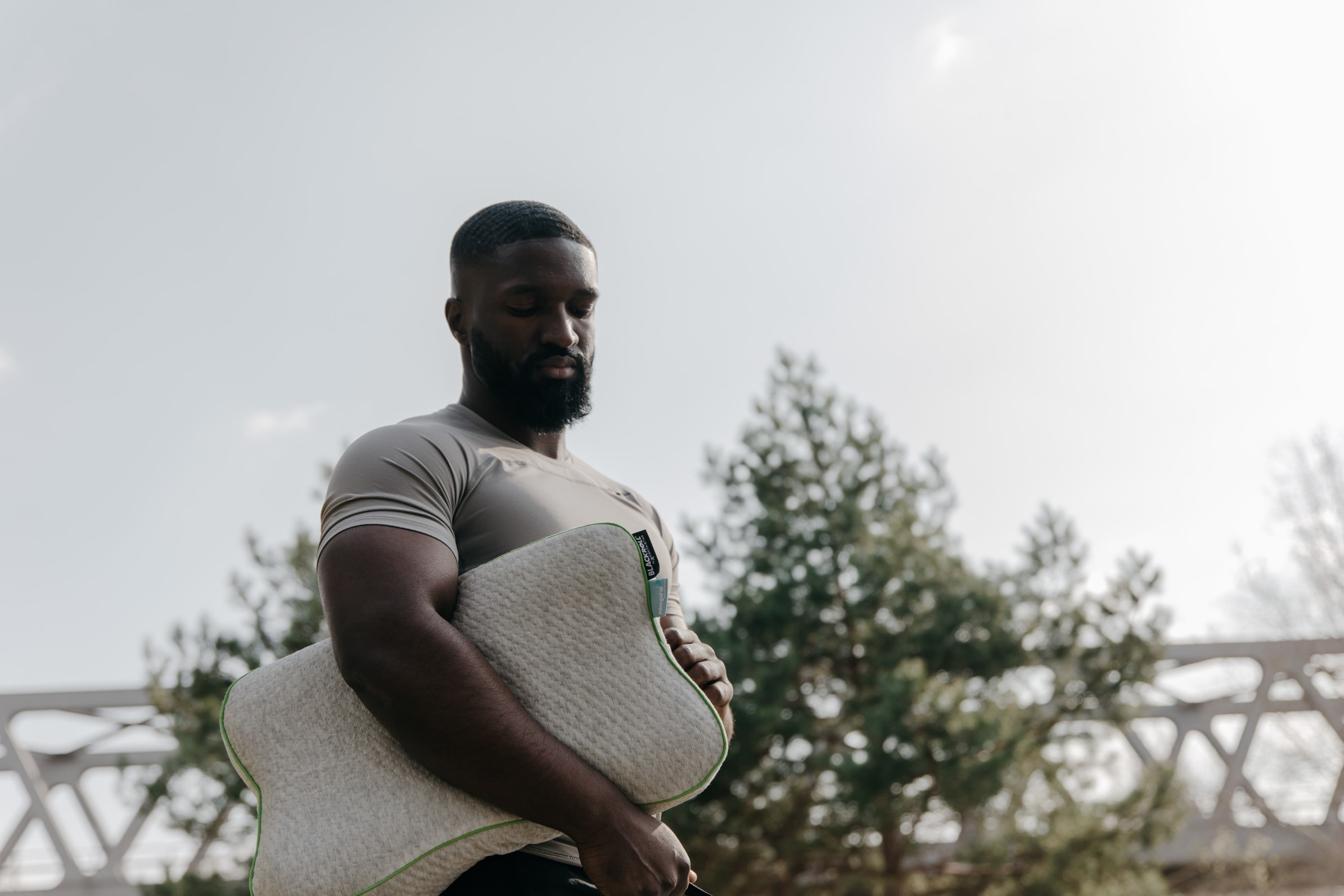

BLACKROLL® meets sleep and recovery expert Anna West.
Her job is to identify habits in her clients that have an impact on sleep and performance. She also teaches her clients how they can use a good night's sleep to boost their performance. She mainly works with professional footballers in Europe, including in collaboration with the German national team and Premier League clubs.
BLACKROLL®: Anna, what role does sleep play in professional sport?
Anna: About six to seven years ago, sleep was considered important in professional sport, but not as a tool for optimizing performance that should be invested in. Today, sleep plays a more fundamental role in improving performance.
For many clubs, a good night's sleep is an integral part of the training plan. However, it is sometimes difficult to put this into practice. As with nutrition, knowledge about sleep must not only be taught in theory, but also actively implemented in everyday life.
This is where I come in: I help athletes and clubs to apply knowledge they have already acquired in a meaningful way.
BLACKROLL®: Do professional athletes suffer from sleep problems before important matches or events?
Anna: We've all had an important event before which we couldn't sleep well. Professional athletes are no different. Some of them struggle with sleep before an important match. This causes additional stress.
The message here is clear: generally athletes need to get good night's sleep.
We can all put up with a night of poor sleep, whether we are professional athletes, managers, nurses or students. What's more important is consistent quality sleep. You have to take the pressure off yourself to sleep perfectly before every event.
The reality is simply different for professional athletes. If you often sleep in hotels and have to perform at different times of the day, you can't always hope for the best conditions for a good night's sleep. Athletes should learn to make the best of their situation with good sleep hygiene.
BLACKROLL®: What requirements for a good night's sleep do you mean exactly?
Anna: Clubs like the Bundesliga are commercial institutions. From this financial point of view, late kick-off times make sense - spectators are already at the end of the day and have time. However, this contradicts the physical needs of the players. As a consultant, I can't change the match times. But I can teach players to create the best conditions for themselves within their own framework.
One example is room temperature combined with good evening routines before going to bed. These routines help us to relax before we fall asleep. Ideally, the room temperature should not exceed 18 degrees, as our body temperature needs to drop in order to sleep. Players can make sure to keep this in mind even in unfamiliar hotel rooms.
A classic example is the room temperature. Ideally, it should not exceed 18-19 degrees, as our body temperature needs to drop in order to fall asleep. As a player, I can pay attention to this, even when staying in unfamiliar hotel rooms.
BLACKROLL®: What can you do to ensure good sleep hygiene in addition to the optimum room temperature?
Anna: Your sleep strategy starts as soon as you wake up. A morning walk will get you going and your body will benefit from daylight. It's important to activate your system. This applies not only to professional athletes, but to everyone. A long-term healthy routine will also help you get through a night of poor sleep.
Another important point is to drink enough. Many people don't realize that dehydration can affect sleep. If we drink too little, our body has problems with the production of the sleep hormone melatonin. The same applies to nutrition. I recommend avoiding foods that spike blood sugar, such as potato chips.
BLACKROLL®: What do you recommend when your thoughts can't settle down in bed at night?
Anna: For some people, a sleep diary works at such times. Writing down distressing thoughts before going to bed can calm your mind and help you fall asleep.
But it takes practice. I like to compare it to brushing your teeth. Brushing your teeth once is certainly good. But what oral hygiene is really about is the daily routine.
It's the same with sleep hygiene. Writing in a diary regularly can counteract the thoughts circling. Of course, the same applies to other techniques such as yoga or breathing exercises. Practice makes perfect.
BLACKROLL®: You emphasized that sleep tips should be individually tailored. Can you explain this in more detail?
Anna: The knowledge I impart is based on the results of many years of research. However, research is greatly simplified in order to be as meaningful as possible.
Let me give you an example: the World Health Organization recommends seven to nine hours of sleep for adults.
Studies show that deviations from this range can increase the risk of heart disease and diabetes. The emphasis is on "can", because the reality is dynamic. Some people need more sleep, others manage very well with less. The situation is similar with trackers: they reflect values that correspond to scientific standards, not individual needs.
BLACKROLL®: How can your own pillow help?
Anna: We associate our own pillow with a good night's sleep. The smell and the special feeling signal to the body that it is time to sleep. This alone does not guarantee sleep, but it can have a small positive effect.
In addition, hotel pillows are unfortunately not always of the best quality. I recommend this to sportspeople, as it may give them a few extra points for their sleep account in the context of their professional reality. Of course, this also varies from person to person.
BLACKROLL®: Sleep products such as melatonin have become popular in recent years. What do you think about this?
Anna: I believe that sleep habits can be positively influenced even without substances - as long as there is no clinical sleep disorder. This is especially true for alcohol. Unfortunately, many people misuse it to help them fall asleep.
Alcohol disrupts our sleep cycle and reduces the overall quality of sleep. I'm not saying that you should never have a glass of wine. But you should enjoy it consciously and in moderation.
Check your habits.
BLACKROLL®: Is there anything else that should be avoided at all costs?
Anna: Many people underestimate bright light in the evening. Professional athletes, for example, are constantly exposed to strong floodlights in the stadium. This can activate their system and disturb their sleep.
It's similar with smartphones. It's not about the device itself, but about the duration and intention of use. During the pandemic, studies have shown that Facetiming or Whatsapping in the evening had a calming effect. We were isolated, alone with our thoughts - a nice chat with loved ones eased the stress.
Professional athletes are on the road a lot and perhaps only get to talk to friends or family on their smartphone in the evening. It's a different story when you "accidentally" jump from Instagram to YouTube to TikTok for 60 minutes.
The same applies to television. An episode of my favorite series can relax me. But it shouldn't turn into a binge marathon.
The same applies here: check your habits.
BLACKROLL®: So it's all individual. Can you give us a general conclusion?
Anna: Changing sleeping habits is challenging. It doesn't happen overnight. In my opinion, the key lies in a caring and realistic approach. It's important to set realistic goals and gradually change habits so that they suit the individual.
Maybe start by questioning how much water you drink during the day. Check your habits - just like you brush your teeth regularly and go to the dentist for check-ups. Mindfulness is a key element in improving sleep habits.
